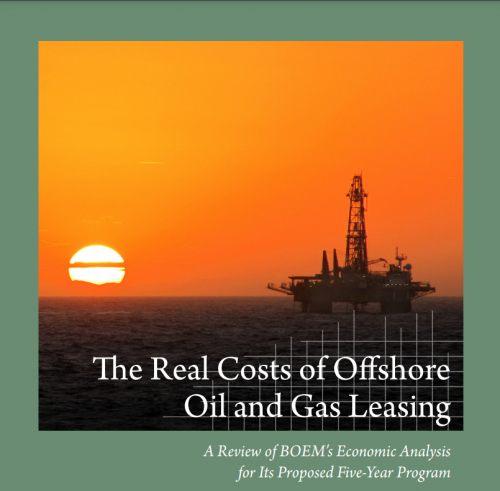In July 2022, the Bureau of Ocean Energy Management (BOEM) released its proposed Outer Continental Shelf oil and gas leasing program for 2023–2028. That plan contemplates holding up to 11 lease sales over the next five years, and conducts an economic analysis concluding that the benefits of those lease sales would exceed the costs.
This report provides comprehensive feedback on BOEM’s economic analysis. As the report details, BOEM vastly understates the environmental and social costs of offshore leasing in several key ways. These include:
- Omitting climate-damage costs for downstream greenhouse gas emissions from its economic analysis. As our report explains, downstream emissions are a critical consideration that BOEM should not ignore.
- Projecting that if the lease sales were not held, then other fossil-fuel sources would increase production to meet demand and so the net climate impacts of the offshore program are limited. As our report explains, this finding is premised on the unlikely assumption that the United States and foreign countries will not take future action to transition to cleaner energy sources. We conducted original economic analysis finding that if future climate mitigation is considered, then offshore leasing would displace renewables much more and other fossil-fuel sources much less than BOEM projects—potentially tripling or quadrupling the agency’s estimate of total net emissions.
- Omitting the costs of catastrophic oil spills from its economic analysis. As our report explains, BOEM’s justifications for omitting catastrophic oil spills from its analysis are insufficient, and economic best practices call for including this critical cost.
All told, our report demonstrates that BOEM’s economic analysis omits most of the environmental and social costs of offshore development. It concludes that there is extensive evidence that, properly considered, the costs of offshore leasing may exceed the benefits.

